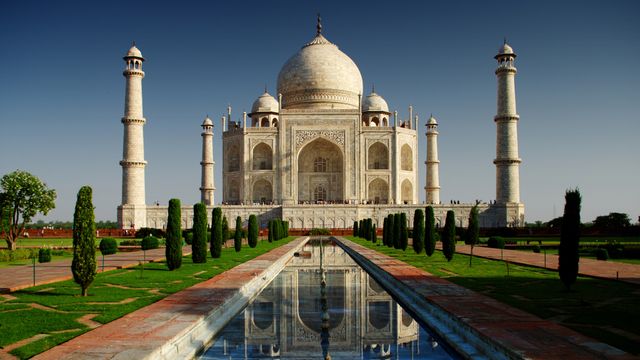1.1.6
The British Empire
The British Empire
The British Empire
Since the 1700s, British people had been exploring other countries and trading with them. They had begun colonising lands across the globe.


Britain the global superpower
Britain the global superpower
- By the 1800s, the British Empire controlled over a quarter of the Earth’s land and its population. It was a global superpower.


Moral responsibility
Moral responsibility
- The British Empire believed it was morally responsible for guiding other countries – it gave guidance on how governments should be run and how countries should be ruled, how the military should work, the construction of railways, how to speak the English language correctly, and what it viewed as the correct form of education.


Savagery of other cultures
Savagery of other cultures
- The British Empire viewed people from different cultures and societies as ‘savage’ and dangerous – in The Sign of the Four, Tonga is presented as the evil, uncivilised, thoughtless murderer.
- Holmes even reads a section about people from the Andaman Islands, which suggests that the people hold ‘massacres’ which are ‘concluded by a cannibal feast’.


Treatment of other cultures
Treatment of other cultures
- When exploring and controlling other countries, the native people and resources were not always treated properly – partly because a lot of the men who were sent to the colonies had their own selfish agendas and did not really care about the people in the countries they visited.


Colonisation of India
Colonisation of India
- During the 18th and 19th centuries, many upper-class men (generally those who were not the oldest sons in families, and so would not receive the family title or fortune) travelled to India as officers in the British Army – there, they hoped to find riches and increase their wealth.
- The British established its own form of government in India and refused to let Indians have full control.
- India did not have full control over its own government until a campaign in 1947, which led to England giving independence to its colony there.
1Context
2Plot Summary
2.1Chapter Summaries
3Characters
3.1Key Characters
3.2Other Characters
3.3Grade 9 - Key Characters
4Key Themes
5Writing Techniques
6Recap: Main Quotes
6.1Characters Quotes
6.2Text Structure - Quotes
6.2.1Chapter 1 - Quotations
6.2.2Chapter 2 - Quotations
6.2.3Chapter 3 - Quotations
6.2.4Chapter 4 - Quotations
6.2.5Chapter 5 - Quotations
6.2.6Chapter 6 - Quotations
6.2.7Chapter 7 - Quotations
6.2.8Chapter 8 - Quotations
6.2.9Chapter 9 - Quotations
6.2.10Chapter 10 - Quotations
6.2.11Chapter 11 - Quotations
6.2.12Chapter 12 - Quotations
Jump to other topics
1Context
2Plot Summary
2.1Chapter Summaries
3Characters
3.1Key Characters
3.2Other Characters
3.3Grade 9 - Key Characters
4Key Themes
5Writing Techniques
6Recap: Main Quotes
6.1Characters Quotes
6.2Text Structure - Quotes
6.2.1Chapter 1 - Quotations
6.2.2Chapter 2 - Quotations
6.2.3Chapter 3 - Quotations
6.2.4Chapter 4 - Quotations
6.2.5Chapter 5 - Quotations
6.2.6Chapter 6 - Quotations
6.2.7Chapter 7 - Quotations
6.2.8Chapter 8 - Quotations
6.2.9Chapter 9 - Quotations
6.2.10Chapter 10 - Quotations
6.2.11Chapter 11 - Quotations
6.2.12Chapter 12 - Quotations
Unlock your full potential with Seneca Premium
Unlimited access to 10,000+ open-ended exam questions
Mini-mock exams based on your study history
Unlock 800+ premium courses & e-books